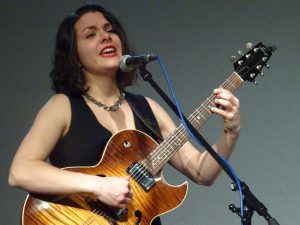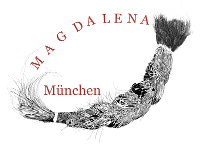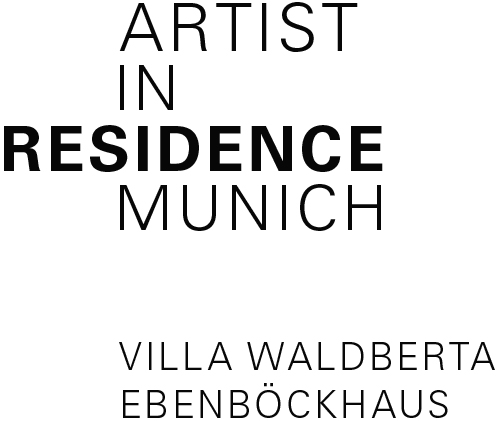Frauen-Theater-Performance
Cecilia Bolaños
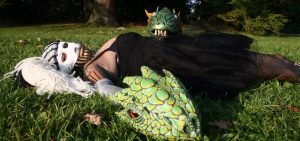 07.04., Performance: Retazos de Piel / Hautfetzen, HochX
07.04., Performance: Retazos de Piel / Hautfetzen, HochX
Cecilia Bolaños lernte am “Foro teatro contemporáneo” bei Ludwik Margules, einem der berühmtesten Regisseure Mexikos. Es folgten zahlreiche Engagements bei Theatern in Mexiko und Rollen in Kurzfilmen. Parallel zu ihrer Ausbildung in modernem Tanz und Gesang bildete Cecilia sich in physischem Theater und der “Mime Corporel”-Technik bei E. Decroux weiter.
In München hat Cecilia originale Performances präsentiert, die sie als Sängerin, Choreografin und Tänzerin entwickelte. Sie leitet das bekannte Theaterensemble Teatro Subversum, das zeitgenössisches spanischsprachiges Theater für ein deutschsprachiges Publikum macht. Die Produktionen verbinden Drama, Tanz, Musik und Video, um ein Bild der lateinamerikanischen und spanischen Welt entstehen zu lassen.
Cecilia Bolaños
Cecilia Bolaños studied at the “Foro teatro contemporáneo” with Ludwik Margules, one of the most famous directors in Mexico. There followed numerous engagements with theaters in Mexico and roles in short films. Parallel to her training in modern dance and singing, Cecilia trained in physical theater and the “Mime Corporel” technique with E. Decroux.
In Munich Cecilia has presented original performances which she has developed as a singer, choreographer and dancer. She directs the theater ensemble Teatro Subversum, which aims to make contemporary Spanish-language theatre, in the original language, known and available in Germany. The productions combine drama, dance, music and video to form an image of the Latin American and Spanish world.
The Hercules & Leo Case
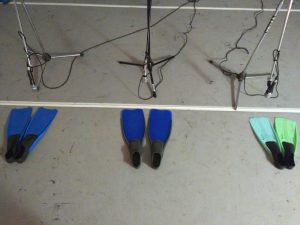 22.04., 19:00 Performance: HochX
22.04., 19:00 Performance: HochX
Schwimmkunst erlernt in weniger als nur einer Stunde
Der Mensch stammt vom Frosch ab – dessen war sich Jean Pierre Brisset, deliriöser Linguist des vorletzten Jahrhunderts, sicher. Seine Schriften zur Verwandtschaft von Mensch und Frosch beeinflussten die Surrealisten und Dadas, die ihn zum „Fürsten der Denker“ kürten. The Hercules and Leo Case nehmen Brisset beim Wort. Seine Studien zur fröschischen und französischen Sprache sowie seine Schwimmlehre bilden den Ausgangspunkt für ihren Brisset – Remix.
Das Performance Kollektiv The Hercules and Leo Case schafft klangliche Arrangements auf der Basis von Stimme und Sprache. Vielfältig eingesetzt, gebrochen, dekonstruiert, rhythmisiert und medial erweitert wird die menschliche Stimme Instrument für eine künstlerische Recherche, die das Verhältnis von tierisch anmutenden Lauten zur differenzierten Sprache oder von einfachen Geräuschen zu Musik produktiv zu machen versucht. Fragend, experimentierend und improvisierend erforscht The Hercules and Leo Case so die Grauzone zwischen Natur und Kultur, bedient sich dabei aus Literatur, Film, Musik und Wissenschaft oder verarbeitet beispielsweise einen Gerichtsfall in New York, in dem versucht wurde zwei in Gefangenschaft lebenden Schimpansen, Hercules und Leo, Persönlichkeits-ähnliche Rechte einzufordern. Der Fall wurde namensgebend und steht sinnbildlich für das Programm des Kollektivs: Ungehörtem eine Stimme geben, Unerhörtes behandeln, Unsichtbares verbergen, damit Unverständliches Gehör finden kann.
Maria Berauer – geb. 1982 in Regensburg; 2012 Diplom in Medienkunst, AdbK München; 2011 1. Staatsexamen Kunstpädagogik; seit 2014 Atelierprojekt Halle 6; Atelierförderung des Bayerischen Staates (2015-2018) und der Stadt München (2014); 2016/2017 Projektförderungen der Stadt München.
Katrin Petroschkat – geb. 1979 in München; 2005 M.A. Kulturwissenschaft, Humboldt Universität zu Berlin; 2015 Diplom AdbK München, Klasse Prof. Gregor Schneider; 2009 Atelierförderung der Stadt München; 2012 Förderpreis der LfA, 2015 Stipendium des bayr. Staates für die Sommerakademie Salzburg.
Karo Knote – geb. 1984 in München; Tischlerin, Möbeldesignerin, Innenarchitektin, Interdisziplinäre Projekte; 2007 Gesellenbrief, Potsdam, Fachrichtung Tischler; 2013 Diplom Akademie der bildenden Künste, Klasse Innenarchitektur; Mitbegründerin von Hölzl Knote Frischholz | Architektur und Gestaltung.
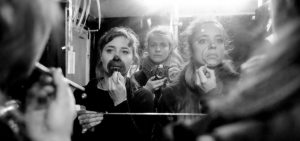
The Hercules & Leo Case
The Art of Swimming learned in less than an hour
The human being is descended from the frog – this case Jean Pierre Brisset, delirious linguist of the forelast century, was sure about. His writings on the relationship between human and frog influenced the Surrealists and Dadas, who named him “Prince of the Thinkers”. The Hercules and Leo Case take Brisset at his word. His studies on the frogish and french languages, as well as his swimming lessons, form the starting point for their “Brisset remix”.
The performance collective The Hercules and Leo Case creates sound arrangements on the basis of voice and language. The human voice is an instrument for an artistic research that explores the relationship between animal-like sounds and differentiated speech, or from simple noises to music producted in a variety of ways – broken, deconstructed, rhythmically and medially extended. Inquiring, experimenting and improvising, The Hercules and Leo Case explores the gray zone between nature and culture, using literature, film, music and science, or for example a New York court case which attempted to give two captive chimps, Hercules and Leo, human rights. The case gives the collective its name, and is symbolic of the concept: giving a voice to the unheard, unheard-of treatment, invisible concealment, so that the incomprehensible can be heard.
Maria Berauer – born 1982 in Regensburg; 2012 Diploma in Media Art, AdbK Munich; 2011 1. State examinatino in Arts Education; since 2014 Atelierprojekt Halle 6; Atelier Promotion of the Bavarian State (2015-2018) and the City of Munich (2014); 2016/2017 project support from the city of Munich.
Katrin Petroschkat – b. 1979 in Munich; 2005 M.A. Cultural Studies, Humboldt University of Berlin; 2015 Diploma AdbK Munich, class of Prof. Gregor Schneider; 2009 granted an Atelier of the City of Munich; 2012 LfA sponsorship award, 2015 scholarship of the Bavarian State for the Summer Academy of Salzburg.
Karo Knote – b. 1984 in Munich; Carpenter, furniture designer, interior designer, interdisciplinary projects; 2007 Gesellenbrief, Potsdam, specialized in carpentry; 2013 Graduate Academy of Fine Arts, Class Interior Design; Co-founder of Hölzl Knote Frischholz Architecture and Design.
Elis & Catherine
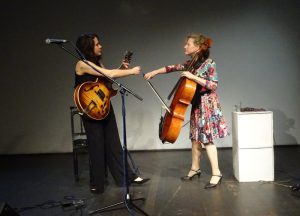
- Foto Galerie
- 24.03., 20:00, Konzert: Um Gosto de Sol, Meta Theater (Moosach)
Gebürtig europäisch, im Herzen aber brasilianisch- so frönen Elis Roseira an Stimme und Gitarre und Catherine Bent am Cello ihrer Leidenschaft für die verschiedensten Stilistiken dieses südamerikanischen Landes. Der einzigartige Klang des Duos entwickelte sich, als die beiden ihre gemeinsame Liebe für den brasilianischen Choro und die Música Popular Brasileira entdeckten und begannen, diese auf ihren für diese Stilistik ungewöhnlichen Instrumenten umzusetzen. So beschränkt sich das Cello keineswegs nur auf lyrisch untermalende Linien, sondern ergreift auch den groovenden Begleitpart, die einfühlsame Melodie oder virtuose Soli. Elis Roseira versteht sich darauf, ihre Stimme sowohl zur Interpretation der stimmungsvollen Liedtexte einzusetzen, als auch als drittes Instrument, das kontrapunktisch mit Gitarre und Cello interagiert.So zeigt sich Elis & Catherine’s Vorliebe für den Dialog zwischen dem Traditionellen und dem Modernen in ihren Kompositionen, der Auswahl ihres Repertoires und ihren unkonventionellen Arrangements.
Das Repertoire des Duos umfasst sowohl eigene Kompositionen, als auch die Musik der großen Komponisten Brasiliens Antônio Carlos Jobim, Milton Nascimento, Ernesto Nazareth, Chico Buarque und Guinga, denen Elis & Catherine liebevoll Tribut zollen. Sie würzen mit nord- und südamerikanischer volkstümlicher Musik, europäischen Tänzen und afrikanischen Rhythmen und präsentieren das Ganze elegant auf Stimme, gestrichene und gezupfte Saiten. Dieses Konzert ist etwas besonderes, das man nicht verpassen sollte.
A 21st century musical fairy tale
Once upon a time, two musicians from Europe met in a New England winter and
discovered they were both under the spell of Brazilian music. From this fateful
meeting a unique musical voice arose and the duo Elis & Catherine was born.
Catherine Bent is a cellist from London who now lives in the United States, and Elis
Roseira, born in Germany, is the duo’s guitarist and singer. Both of them are versatile
freelance musicians who have spent time in Rio de Janeiro at the source of choro,
bossa nova and MPB (música popular brasileira). Catherine Bent played cello for
Cirque du Soleil’s Tour of “Quidam”, has been a guest soloist multiple times on
Brazil’s Rádio Nacional with historic choro band Conjunto Época de Ouro, and is on
the faculty of Berklee College of Music. Elis studied with Peter O’Mara and Freddie
Bryant at Berklee College of Music and is a jazz singer, guitarist, and bandleader in
Munich, Germany.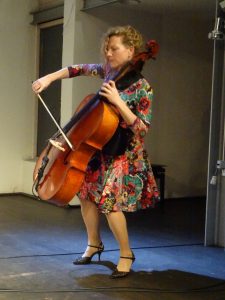
Elis & Catherine pay tribute to the great composers and lyricists of Brazil, with touches of North and South American folk music, European dance music and African rhythms, elegantly rendered on bowed, plucked and vocal strings. They are touring with their new CD “Um Gosto de Sol” (A Taste of the Sun). Elis & Catherine’s love of dialogue between the traditional and the modern is revealed in their choice of repertoire and their unconventional arranging and composition.
Deborah Hunt
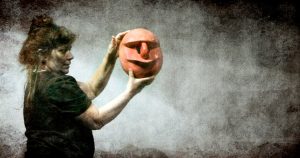 Performance: Tale 53: Snowhite, 02.02., 03.02. HochX und 24.02. Meta Theater (Moosach bei Grafing)
Performance: Tale 53: Snowhite, 02.02., 03.02. HochX und 24.02. Meta Theater (Moosach bei Grafing)- Workshop – The Macanudos: vier Tage Maskenworkshop, 12-16.02., mit öffentliche Abschlussparade, 17.02., Olympia Einkaufszentrum
Deborah Hunt ist Maskenbildnerin, Puppenspielerin und Performance-Künstlerin, die über 45 Jahre Erfahrung bei der Entwicklung und Präsentation origineller Theater- und Performance-Arbeiten verfügt. Sie lebt in Puerto Rico und arbeitet international, häufig beispielsweise mit dem Odin Teatret (Dänemark) sowie anderen Künstlern und Theatergruppen. Deborah wird bei der Eröffnungsveranstaltung der Magdalena Saison eine neue Performance zeigen und dann einen zweiwöchigen Workshop zum Thema “Maskengestaltung und Masken-Performance” für Münchner Teilnehmer leiten. Der Workshop wird in Performances an öffentlichen Orten, wie z.B. Einkaufszentren und Stadtplätzen, gipfeln.
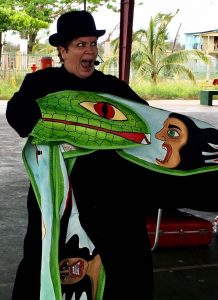 Deborah Hunt
Deborah Hunt
Deborah Hunt is a maskmaker, puppeteer and performance artist with 45 years experience in the creation and presentation of original theater and performance works. She is based in Puerto Rico and works internationally, collaborating frequently with Odin Teatret (Denmark) and other artists and theatre companies. Deborah will present a new performance at the opening of the Magdalena Saison, and afterwards lead a workshop over two weekends for local participants in mask-making and mask performance. The workshop will culminate in performances in public places such as shopping centres and public squares.
Workshop: The presence of emptiness
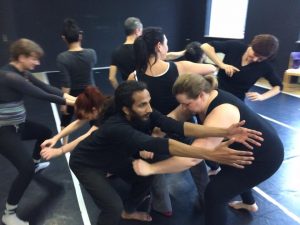 10-11.03, 10:00 – 17:00, Auenstr. Proberaum
10-11.03, 10:00 – 17:00, Auenstr. Proberaum- Gebühr: €150 | Ermäßigt €90 (Studenten, Geringverdiener, Rentner, Arbeitslose)
Workshop: Die Gegenwart der Leere
„Wenn der Wind des Wandels weht, bauen die einen Mauern, die anderen bauen Windmühlen.“ Chinesisches Sprichwort
Die Suche nach einer kreativen Sprache, die die Zeit reflektiert, in der wir leben. Angeleitet von Sandra Pasini und Antonella Diana vom Teatret OM.
Inhalt: Körper, Stimme, Raum und Empfinden. Physisches und stimmliches Training, Erkundung von Raum und Objekten. Das Ziel ist es, Empfindsamkeit und Kommunikation in der Gruppe zu wecken, einen Sinn für gemeinsames Atmen und dynamische Kreativität. Auf Grundlage der Arbeitsmethoden des Teatret OM werden wir die Interaktion zwischen Darsteller und visueller Kunst erkunden: Bewusstsein über Raum und Bewegung durch einen dynamischen Gebrach von Körper, Bewegung, Klang und Objekten.
Über die Anleiter:
- Sandra Pasini: Künstlerische Leitung des Teatret OM, Regisseurin, Schauspielerin, Clown und Musikerin
- Antonella Diana: Bühnenbildnerin und visuelle Künstlerin, Leiterin des Bühnenbild-Laboratoriums am Teatret OM.
The Presence of Emptiness
When the wind of change is blowing, some build walls, others build windmills”. – Chinese proverb
Research of a creative language that reflects the times we live in. Facilitated by Sandra Pasini and Antonella Diana of Teatret OM.
Content: Body, voice, space and sensitivity. Physical and vocal training, exploration of space and objects. The aim is to create sensitivity and communication within the group, a sense of a common breath and dynamic creativity. Based on the working methods of Teatret OM, we shall explore interaction of the performer and the visual arts: awareness of space and action through a dynamic use of body, movement, sound and objects.
About the facilitators:
- Sandra Pasini: Artistic leader of Teatret OM, director, actress, clown and musician
- Antonella Diana: Scenographer and visual artist, leader of Scenografic Lab at Teatret OM
I Maltagliati
- 09.03., 19:30, HochX
- Foto Galerie
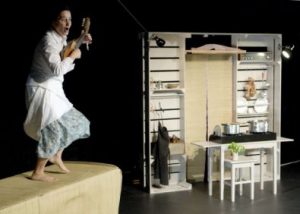
EIN LEBEN SINGEN
Eine Frau. Ein Radio. Ein Nudelgericht – und zuallererst: Gesang.
Eine alte Frau steht in ihrer Küche und kocht ein Pasta-Gericht, I Maltagliati, für einen Gast. Während des Vormittags durchlebt sie ihr Leben durch Lieder nochmals.
I Maltagliati vom Teatret OM ist um eine Reihe kraftvoller italienischer Volkslieder und anderer Lieder aufgebaut, die auf einzigartige Weise gewöhnliche menschliche Gefühle, Wünsche und Träume vermitteln. Diese Lieder sind die Stimme einfacher Leute und decken alle Bereiche alltäglichen Lebens ab: Arbeiten, lieben, kämpfen, geboren werden und sterben.
Die Geschichte spielt sich in zwei verschiedenen Räumen ab: dem physischen Raum, der Küche, wo die Frau – nur in Gesellschaft eines Radios – Nudeln kocht, und dem Raum der Erinnerungen, wo wir das Leben der Frau in Rückblenden sehen, die offen für die eigene Interpretation der Zuschauer sind.
I Maltagliati wird in Dänisch und Italienisch oder in Englisch und Italienisch aufgeführt und besteht vor allem aus Gesang. Eine starke Performance über das Leben einer Frau, geleitet und gespielt von Sandra Pasini.
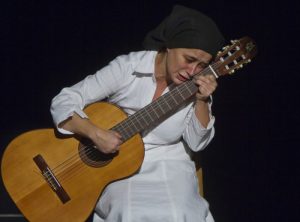 Regie und Schauspiel: Sandra Pasini
Regie und Schauspiel: Sandra Pasini
Co-Regie: Ana Woolf
Bühnenbild, Requisiten und Kostüme: Antonella Diana
Radiosprecher: Claus Johansen
Musikalische Beratung: Roberto Diana und Annemarie Waagepetersen
Künstlerische Beratung: Iben Nagel Rasmussen
Technik: Freddy Giorgi
Pressestimme
„Kammerspiel auf italienisch, so kann man die Performance I Maltagliati vom Teatret OM bezeichnen, das mit donnerndem Applaus belohnt wurde. Die Musik, ihre brillante Körpersprache und fantastische Stimme führen das Publikum sicher durch das Leben einer Frau, erzählt von einer alten Frau, während sie kocht.“ Annette Holm – Dagbladet Ringkøbing-Skjern
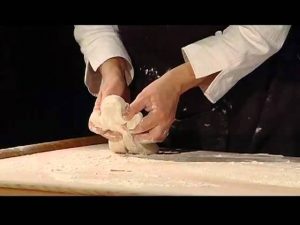 A woman. A radio. A pasta dish – and first of all singing.
A woman. A radio. A pasta dish – and first of all singing.
An old woman is standing in her kitchen cooking a pasta dish, I Maltagliati, for a guest. During a morning she relives her life through songs.
I Maltagliati by Teatret OM is built around a series of powerful, Italian folk songs and other songs that uniquely communicates ordinary human feelings, desires and dreams. The songs are the voice of ordinary people and cover all aspects of everyday life: working, loving, struggling, being born and dying.
The story takes place in two different spaces: the physical space, the kitchen, where the woman makes pasta only in the company of a radio, and a space of memories, where we see the woman’s life in flashbacks, open to the viewer’s own interpretation.
I Maltagliati is performed in Danish/Italian or English/Italian, and is primarily sung. A strong performance about a woman’s life, directed and performed by Sandra Pasini.
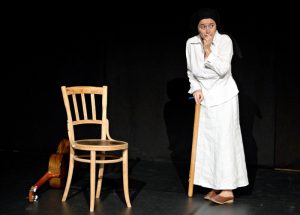
Direction and actress: Sandra Pasini
Co-direction: Ana Woolf
Scenography, props and costumes: Antonella Diana
Radio voice: Claus Johansen
Music consultants: Roberto Diana og Annemarie Waagepetersen
Artistic consultant: Iben Nagel Rasmussen
Technician: Freddy Giorgi
Press quote
“Chamber play in Italian. This is what you can call Teatret OM’s performance I Maltagliati, which was received with thunderous applause. The music, her brilliant body language and fantastic voice, lead the audience safely through a woman’s life told by an old woman while she cooks.” Annette Holm – Dagbladet Ringkøbing-Skjern
I Maltagliati è diretto e interpretato dalla direttrice artistica del Teatret OM, Sandra Pasini. Teatret OM è fondato a Roma nel 1989 da Sandra Pasini e Antonella Diana (scenografa). Nel 1995 il gruppo si traferisce in Danimarca.
Un po’ sullo spettacolo:
Una donna anziana si trova nella sua cucina preparando un piatto di pasta, I Maltagliati al sugo, per un ospite. Durante la mattinata rivive/ricorda la sua vita attraverso i canti.
Lo spettacolo è creato con una serie di canti popolari italiani e altri canti, che comunicano in modo univoco sentimenti umani, desideri e sogni. I canti sono le voci delle persone comuni e comprendono tutti gli aspetti della vita quotidiana: il lavoro, l’amore, la lotta, la nascita e la morte.
Teatret OM
 Performance: 09.03., I Maltagliati. HochX :
Performance: 09.03., I Maltagliati. HochX :- Workshop: The presence of emptiness
Das Teatret OM wurde 1989 von Sandra Pasini (Schauspielerin und Regisseurin) und Antonella Diana (Bühnenbildnerin) gegründet. Es folgten Reisen durch Südamerika, insbesondere Kolumbien, die ihnen die Wichtigkeit von Theater aufzeigten und bestätigten. 1994 und 1995 studierten sie am Odin Teatret und machten 1995 Dänemark zu ihrem permanenten Wohnsitz. 2006 zog die Gruppe nach Ringkøbing und wurde zum offiziellen Theater der Gemeinde Ringkøbing-Skjern.
Die künstlerische Arbeit am Teatret OM erkundet die Beziehung zwischen der dramaturgischen Arbeit des Schauspielers und den visuellen Künsten: wie Raum, Farben und Objekte mit dem Schauspiel interagieren, so dass sie nicht nur ästhetischer Ausdruck der Aufführung sind, sondern auch ein Raum, der sich der Aufführung eröffnet und ihre eigentliche Heimat ist. Im kreativen Prozess entwickelt sich das schauspielerische Material parallel und in Beziehung zum Bühnenraum. Die Schauspielerin ist die Stütze der Vorführung, deshalb ist es ihre erste Aufgabe, ihre Werkzeuge durch körperliche und stimmliche Schulung zu entwickeln. Teatret OM erschaffen und bewahren eine einzigartige künstlerische Linie und Identität, die ihre Grundlage ist, wenn sie neue künstlerische Prozesse angehen und mit verschiedenen Regisseuren zusammenarbeiten. Sandra Pasini begann schon 1979, im Alter von 15 Jahren, in Italien Theater zu spielen, wo sie zeitgenössisches Theater und Clown bei der berühmten italienischen Zirkusfamilie Colombaioni lernte. Sie studierte verschiedene Theatertechniken und ist eine geschickte Musikerin (Gitarre, Percussion und Posaune) und Sängerin. Seit 1993 ist Sandra Mitglied der internationalen Gruppe Bridge of Winds, geleitet von Iben Nagel Rasmussen (Schauspielerin beim Odin Teatret) und gibt regelmäßig Workshops zu Schauspielmethoden, Stimme und Rhytmus.
Antonella Diana ist Bühnenbildnerin, bildende Künstlerin und Leiterin des Bühnenbild-Laboratoriums beim Teatret OM. Sie schloss 1988 ihr Studium an der Kunstakademie in Rom ab, lernte am Odin Teatret und absolvierte zusätzlich Kurse in Graphikdesign und symbolischer Malerei. Seit 1993 ist Mitglied der Bridge of Winds. Sie designte und stellte Räume, Objekte, Requisiten und Kostüme für ein breites Spektrum von Theaterveranstaltungen her, zum Beispiel für Schauspiel-Tourneen für Kinder und Erwachsene, ortsspezifische Veranstaltungen, Paraden, Konzerte, Kabaretts und Kulturaustausch-Events auf der ganzen Welt. Außerdem gibt sie Workshops für Kinder und Erwachsene.
Annemarie Waagpetersen kam 2001 zum Teatret OM und ist seit 1999 Mitglied der Bridge of Winds. Sie studierte Flöte an der Königlich Dänischen Musikakademie und schloss ihr Studium 1999 mit einem Diplom in Musik und Schauspiel an der Musikakademie in Fyn ab. Zwischenzeitlich studierte sie zudem in Florenz, Paris und Straßburg. Das Teatret OM wird im März 2018 in der Villa Waldberta zu Gast sein, wo sie an einem Buch zum 30jährigen Jubiläum der Kompanie arbeiten werden. Sie werden das Stück “I Maltagliati” vorführen sowie einen Theaterworkshop leiten.
Teatret OM
Teatret OM was founded in Rome in 1989 by Sandra Pasini (actor and director) and Antonella Diana (scenographer), following travels in South America and particularly Colombia that impressed apon them the importance of theatre. In 1994 and 1995 they studied at Odin Teatret, and in 1995 moved permanently to Denmark. In 2006 the group moved to Ringkøbing and became the regional theater for the municipality of Ringkøbing-Skjern.
The artistic work at Teatret OM explores the relationship between the dramaturgic work of the actor and the visual arts: an investigation of how space, colours and objects engage with the work of the actor, so that they become not only the aesthetic expression of the performance, but also a space opening up to the performance as its actual place of belonging. In the creative process, the actor’s material is developed parallel to and in correlation with the scenic space. The actor is the mainstay of the performance, therefore as the foremost task to develop the actor’s tools through physical and vocal exercise. Teatret OM creates and preserves their unique artistic line and identity, which forms their base when they explore new creative processes and engage in collaborations with different directors.
Sandra Pasini began to work in theatre in Italy in 1979 at the age of 15, studying contemporary theatre together with clown style with the famous Italian circus family Colombaioni. She has studied various theatre techniques and is a skilful musician (playing guitar, percussion and trombone) and singer. Since 1993 Sandra has participated in the international group Bridge of Winds, led by Iben Nagel Rasmussen (actress at Odin Teatret). She regularly gives workshops in actors’ working methods, voice and rhythm.
Antonella Diana is a scenographer, visual artist and head of Scenographic Lab at Teatret OM. She graduated in 1988 from the Arts Academy in Rome and has studied at Odin Teatret and additional courses in graphic design and Icon painting. She is a member of the Bridge of Winds since 1993. She has designed and created spaces, objects, props and costumes for a wide range of theatrical events including touring performances for children and adults, site-specific events, parades, concerts, cabarets, cultural barterings around the world, and has taught workshops for children and adults.
Annemarie Waagpetersen joined Teatret OM in 2001, and has been a member of the Bridge of Winds since 1999. She trained as a flautist at the Royal Danish Academy of Music, and graduated in 1999 with a Musician-Performer Diploma from the Academy of Music in Fyn. Along the way, she studied in Firenze, Paris and Strasbourg.
Teatret OM will be guests at the Villa Waldberta during March 2018, where they will work on a book to celebrate the company’s 30th anniversary in 2019. They will present the performance I Maltagliati and lead a theatre workshop.
Zoe Gudović
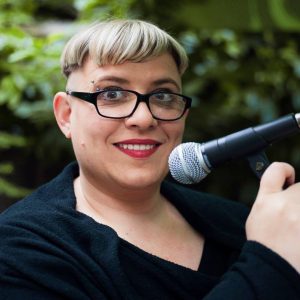
- Installation: DISSOCIATION, mit das KloHäuschen, 03., 09., 10., 23.02.
- Präsentation: Feministischer Activismus als Performance, 06.03, HochX
- Zoe Gudović ist von Goethe Institut (Serbien) unterstützt.
Zoe Gudović ist Feministin, lesbische und künstlerische Aktivistin und die PR Managerin des serbischen Reconstruction Women’s Fund. Zusätzlich zu ihrer Arbeit für den Fund ist Zoe in der Erforschung und Ausübung von informellem und politisch engagiertem Theater tätig. Seit 1998 ist sie Mitglied der feministischen Gruppe Women at Work. Sie verbindet ihre Kunst mit Aktivismus mit dem Ziel, gesellschaftliche Verhältnisse zu verändern. Als Gründerin von ACT Women, einer 2003 entstandenen feministischen Theatergruppe, und der Aktivistengruppe Queer Belgrad hat sie ihre einzigartige Form des Straßentheaters auf viele Festivals in der ganzen Welt gebracht. Zoe hat außerdem verschiedene Straßen-Performances als Teil der Kampagne “16 Tage Aktivismus gegen genderbasierte Gewalt” realisiert.
Sie hat die letzten 20 Jahre politisch engagierte Kunst studiert, konsumiert, geschmeckt und aufgeführt. Seit 1999 arbeitet sie aktiv daran, feministische Performance-Kunst sichtbar zu machen, zum Beispiel durch die Mitgründung des Feminist Theatre und das Weitervermitteln von Theaterpraktiken. Seit 2001 hat sie Theaterworkshops in über 20 Städten in Serbien und mehreren Städten des früheren Jugoslawien sowie Europas gehalten: Ljubljana, Sarajevo, Skopje, Barcelona, Berlin, Budapest, Wien etc. Auch seit 2001 schafft sie unter dem Titel “Women’s Movement – Women’s Theatre – Women’s Body” Verbindungen zwischen Künstlerinnen und Aktivistinnen, indem sie Künstlerinnen aus aller Welt einlädt, mit Frauen aus Serbien zu arbeiten.
Zoe hat zahlreiche Kampagnen für die Anerkennung der LGBT Community, für Frauenrechte und marginalisierte Gruppen organisiert. Sie ist offizielle Beraterin des Global Fund for Women (USA) und der Mama Cash Foundation (Niederlande). Darüber hinaus hat sie die feministische Radiosendung “Zenergija” veranstaltet, die Frauen-Band Charming Princess mitbegründet und ist als Drag King aufgetreten. Die letzten drei Jahre hat sie im Fachgebiet Frauenstudien der Fakultät für Politikwissenschaften der Universität von Belgrad Vorlesungen zum Thema feministische Kunst im öffentlichen Raum gehalten.
2016 hat sie den Jelena Šantić Preis für die Verbindung von Kunst, Aktivismus und Menschenrechtsarbeit erhalten (http://fjs.org.rs/obrazlozenje-zirija-za-nagradu-jelena-santic-zoi-gudovic/) und 2017 den Feminist Achievement Award für die Bekanntmachung des Feminismus außerhalb der feministischen Bewegung.
Zoe wird an einer Podiumsdiskussion zu Feministischem Aktivismus als Performance teilnehmen, ihre feministische Theaterarbeit in Serbien präsentieren, mit Das KloHäuschen zusammenarbeiten und mit Münchner Aktivistinnen netzwerken.
Zoe Gudović
Zoe Gudović is a feminist, lesbian, artactvist and the PR Manager of the Reconstruction Women’s Fund of Serbia. In addition to her work with the Reconstruction. Women’s Fund, Zoe is engaged in the research and practice of non-formal and engaged theater forms. She has been a member of the feminist group Women at Work since 1998. She connects her art and activism with the aim of changing social relations. Co-founder of ACT Women, a feminist theater group started in 2003, and the activist group Queer Beograd, she has brought her unique form of street theater to many festivals, around the world. Zoe has also organized various street performances as part of the 16 days of Activism Against Gender Based Violence campaign.
Zoe has been studying, consuming, tasting and performing engaged art for the last 20 years. Since 1999 she has worked actively on making feminist performance art visible, from co-founding the Feminist Theatre to sharing theatre practices with others. Since 2001 she has held theatre workshops in over 20 towns across Serbia and several towns in the region of former Yugoslavia and Europe: Ljubljana, Sarajevo, Skopje, Barcelona, Berlin, Budapest, Vienna etc. Also since 2001 she has been making connections between women artists and women activists, under the title “Women’s Movement – Women’s Theatre – Women’s Body”, inviting various artists from around the world to work with the women from Serbia.
Zoe has organized numerous campaigns for the visibility of LGBT community, women’s human rights, and people from the margins. She is an Official Advisor with the Global Fund for Women (USA) and an advisor of the Mama Cash Foundation (Netherlands). In other fields, Zoe has hosted the feminist radio show Zenergija, co-founded the women’s music band Charming Princess and performed as a drag king. For the last three years she has lectured on issues of feminist art in public spaces, at the Women’s Studies section of the Faculty of Political Sciences, University of Belgrade.
In 2016 she received the Jelena Šantić Prize for connection art and activism, and promoting human rights (http://fjs.org.rs/obrazlozenje-zirija-za-nagradu-jelena-santic-zoi-gudovic/) and in 2017 she received the Feminist Achievement Award for promoting feminism beyond the feminist movement.
Zoe will participate in the panel discussion Feminist Activism as Performance, make a presentation about her feminist theatre work in Serbia, realise the performance-installation DISSOCIATION in collaboration with das KloHäuschen and network with activists in Munich.

Zoe Gudović wird vom Geothe Insitut unterstützt.
Harmoniegesang / Harmony Singing
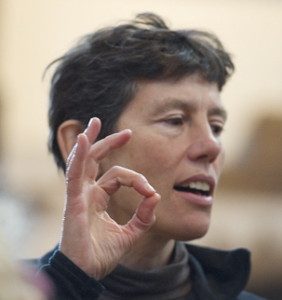 Foto Galerie
Foto Galerie- 17.-18.03., 10:00 – 17:00, Auenstr. Proberaum
- Gebühr: €150 | Ermäßigt €90 (Studenten, Geringverdiener, Rentner, Arbeitslose)
Harmoniegesang mit Helen Chadwick
Im Rückgriff auf die reiche britische Tradition des Chorgesangs wird Helen Chadwick die Gruppe in einem fröhlichen und inspirierenden Harmoniegesang-Workshop leiten. Dabei zieht sie sowohl ihre eigenen erhebenden Lieder heran als auch klassische Musik und georgische Polyphonie aus dem Kaukasus, wo sie dreimal auf Reisen war und mit führenden Experten dieser Tradition gesungen hat – einer reichen, alten und einzigartigen Liedtradition. Helens eigene Lieder enthalten traumhafte Harmonien und Texte inspirierender Dichter aus der ganzen Welt.
Harmony Singing with Helen Chadwick
In the great British tradition of choral singing, Helen Chadwick will lead the group in a fun and inspiring harmony singing workshop drawing on her uplifting harmony songs as well as classical music and Georgian polyphony from the Caucus mountains where she has been on field trips three times and sung with leading experts in the tradition. It is a rich, old and unique tradition of songs. Helen’s own songs include gorgeous harmonies, and those with texts by inspirational poets from around the world.
“Helen Chadwick’s workshop was wonderful, I have been waiting 50 years for it! In the space of just two days she gave us many different approaches and ideas how harmonies can be built up, how to improvise on a melody, how to write a song using any given text … she really opened the doors wide into a garden of many possibilities.”
Tamiko Thiel, workshop participant.
Ich habe am Harmoniegesangworkshop mit Helen Chadwick teilgenommen. Hat mir sehr gut gefallen…eine offene freundliche Atmosphäre, Momente wunderbarer Harmonie , auch die Herausforderung selbst kreativ zu werden. Und der Raum (abgesehen vom künstlichen Licht) war passend ,mit Blick auf Bäume und Isar!
Christiane Abadi, Workshop Teilnehmerin.
The two days with Helen Chadwick were enormously inspiring and fulfilling! It was a pleasure and still challenging to learn some of her wonderful own songs and sing them with the group. The workshop was intensive, we got a lot of material, including two traditional Georgian polyphonic songs, we got to know various body-voice-exercises, experimented with our own voices and were finally brought to composing own songs. Time was flying and I would love to continue this amazing work with Helen! Thank You!
Maria Berauer, workshop participant
Fragments of Love
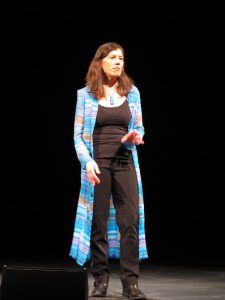
- 09.03., 19:30 HochX
- 16.03, 20:00 Meta Theatre (Moosach)
- Fotogalerie
Um das Thema der Wichtigkeit von Improvisation und Risikofreudigkeit spinnt Helen Chadwicks viertes Solostück Liebesgeschichten und Liebeslieder, die mit Geist und Humor Leben und Sterben erkunden. Einmal bewegend, einmal lustig und manchmal berauschend bewegt sich die Performance auf einen kraftvollen Höhepunkt zu, an dem Helens Stimme sich live mit verblüffenden Aufnahmen von gesungenen Improvisationen verflechten, die auf Liebesgedichten der griechischen Dichterin Sappho basieren. Die Stimmen verschmelzen dabei geradezu miteinander. Diese abschließenden Lied-Improvisationen wurden ursprünglich von der Getty Villa in Los Angeles für dortige Vorführungen in Auftrag gegeben.
Publikumsmeinungen zu Fragments of Love:
„Wieder einmal definiert Helen Chadwick das Genre des Gesangs neu, indem sie eine Vorstellung bietet, die abwechselnd elegant, aufrichtig, lustig, roh und zärtlich ist. Fragments of Love ist ein schönes und berührendes Stück voll von Menschlichkeit, das jeden direkt anspricht, der je geliebt hat – oder gelebt, besser gesagt.“
„Fragments of love ist abwechselnd intim, lustig, schmerzhaft, berührend und erhebend. Helen ist eine fesselnde Performerin; überraschend und tiefschürfend in ihren Enthüllungen und musikalisch großartig.“
„Fragments of love singt uns in intime Momente, auf evokative und mächtige Weise hält uns der mühelose Anmut von Helens Performance fest.“
Fragments of Love
On the theme of the importance of improvisation and taking risks, Helen Chadwick’s fourth solo-show weaves love stories and love songs that explore living and dying with wit and humour. Sometimes moving, sometimes funny and sometimes exhilarating, the performance moves towards a powerful climax where Helen’s voice is interwoven live with recordings of stunning sung improvisations based on fragments of love poems written by the Greek poet Sappho. The sound is produced in such a way that the voices are totally melded together. These final song-improvisations were commissioned by the Getty Villa Los Angeles for performances there.
Audience feedback on Fragments of Love:
“Once again, Helen Chadwick redefines the genre of vocal music, producing a show which is by turns elegant, candid, funny, raw and tender. Speaking directly to anyone who’s ever loved – or lived for that matter – Fragments of Love is a beautiful and touching piece, full of humanity.”
“Fragments of Love is by turns intimate, funny, painful, touching and uplifting. Helen is a riveting performer; surprising and profound in her revelations, and musically sublime.”
“Fragments of Love sings us into intimate moments, evocative and potent we are ‘held’ by the seemingly effortless grace of Helen’s performance.”
